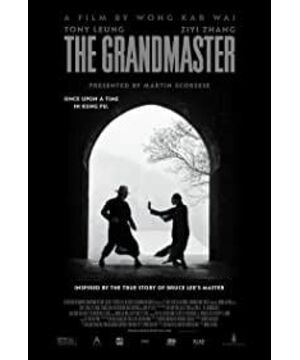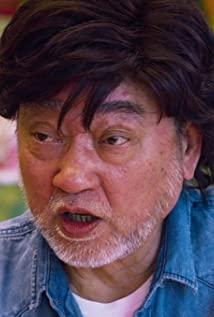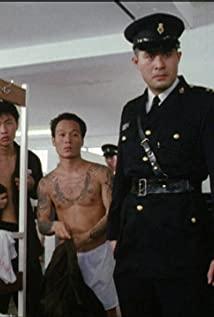Watching "The Grand Master", the first thing to do is to forget that it was once a biopic of Ip Man. In terms of the released version, it has completely become an epic film about the rise and fall of martial arts in the Republic of China. The former protagonist, Ye Wen, turned sideways into a bystander and a narrator. What was staged in the middle of the stage is something we are not familiar with but feel very much. The golden age of cordial Chinese martial arts.
The first hour of a complete
film about the changes in martial arts is the history of Ye Wen's rise to fame. In the words of Chairman Gong, "the newcomers are about to come forward", and the action scenes of fighting between dragons and tigers are staged one after another. In the next hour, the main line of the plot jumped to Miss Gong Er's legendary revenge story and the emotional entanglement between her and Ye Wen, interspersed with the experience of Bajiquan's successor. If you look at it with the expectation of "Ip Man's Biography", the story will be scattered, but if you look at it from the concept of "a generation of masters", you will find that the story is not only unbroken, but also highly structured, with each clue echoing each other A complete work that complements each other.
Chinese martial arts pay attention to the inheritance of martial arts. No matter which boxing style, there are not many direct disciples of each generation. It is a skill that is passed down in a small range. However, in the precarious martial arts of the Republic of China, there are internal strife and external insults. Gong Baosen, Gong Er, Yixiantian and Ye Wen have all made their own choices before the big era. Gong Baosen merged the various factions into one family. He was a "hero of one day and one place", but he was not conservative. Before retiring, he gave up his reputation to Ye Wen. Ye Wen also lived up to the expectations of President Gong, jumping out of the rut of "boxing the north and the south", and spreading Wing Chun to the world with the spirit of "Great Harmony in the World".
Gong Er is a person who only cares about the temperament in front of him, so he is destined to not be able to take charge of a sect. She willfully consumed her future and life in the blood feud after her father's death, sealing herself forever in an era that is about to end. On the other hand, Yixiantian took a unique approach and continued to inherit the unique skills of the teacher under the cover of a haircut. The choices of these four masters are different, but they clearly embody all the pain, hesitation and new life that traditional martial artists face in the new era. Together, they are a complete history of martial arts changes.
"Story" no longer thinks
about Wong Kar-wai's films, but focuses on image expression and character building. Stories are often covered with subtitles and narration. He is good at magnifying every moment and depicting each and every one of the characters and scenes full of energy, so every scene is so fascinating, but what kind of story these scenes tell together often makes people think hard. There are a lot of debates around "The Grandmaster". Wong Kar-wai and Xu Haofeng came out and made a lot of explanations. In fact, compared with other old works, the story, characters and concept of "The Grandmaster" are quite complete. Organically integrated into the development of the plot, the "story" and "spectacle" have been well balanced.
For example, when Wong Kar-wai's film captures the scene of "waiting", he immediately gets excited. The flow of people passing by, the long staring of the camera on the lonely face, the light and shadow of light and shade, and the sobbing music are all the signatures of Wong Kar-wai's films, expressing the eternal theme of his films: the passage of time and the loneliness of life. In his previous films such as "Fallen Angels" and "Dong Xie Xi Du", this scene alone is enough to constitute a paragraph. There are also many "waiting" scenes in "The Grand Master", such as Zhang Yongcheng waiting for Ye Wen to go home, Gong Er Jin Tower waiting for Ye Wen to go to a banquet, Gong Er Railway Station waiting for Ma San to show up, etc. The same expression The technique has been endowed with different emotions, loneliness, anxiety, and confidence... There are more levels than before. Although sometimes this kind of integration can have the effect of making people laugh and cry, for example, Gong Er and the aunts are waiting for Ip Man in the sound of the opera like an oil painting, but Wong Kar-wai's unscrupulous poetic expression in the past has been incorporated into the track of the story, which itself It is already a compromise to the audience's taste.
For another example, Wong Kar-wai has always been not very good at action scenes, but this film actually has a good performance. In his only previous martial arts work "Evil in the East", the action scene was purely a commercial gimmick, used as a show. The martial arts scenes in "The Grandmaster" are full of weight, occupying almost 40% of the entire film, and really support the "spectacle" part that is necessary for commercial films. More important than weight is quality. These action scenes are rich in layers, ranging from "literary fights" such as lighting cigarettes and breaking cakes, to duels at train stations where life and death are fought, from rain-drenched street fights to The shape, focus, mood and imagery of each scene are different. Obviously, it has been carefully thought out and designed, which is pleasing to the eye.
These martial arts not only stimulate the senses, but also promote the storyline, portray the relationship between the characters, and integrate with the plot. For example, Gong Er and Ye Wen played against each other in the golden building. Originally, the two of them used their own tricks. After a few tricks, they actually started to exchange boxing skills. Pulled Gong Er, so they lost, and the two went up and down. The willful Gong Er was complacent, while Ye Wen smiled generously. The personalities and relationships of the two masters were thus revealed through martial arts, which can be described as a good paragraph. Contrary to this, the opening scene of Ip Wen Yuye fighting against the thugs, all kinds of close-ups and slow-motion images are completely Wong Kar-wai-style images, which are absolutely necessary from the point of view of commercial gimmicks and visual stimulation, but do not help the story in the slightest. Wong Kar-Wai is a smart guy who knows how to balance his style and business needs in a movie.
All of the above are the different Wong Kar-wai brought to us by "The Grandmaster".
Jumping out of "crazy men and women say impermanence"
Behind these innovations, Xu Haofeng, one of the screenwriters of this film, is a name that cannot be ignored. The works of this writer, scholar and director often have a very eccentric temperament. There are both the legendary style of the famous and upright, and the nonsense paragraphs that make people collapse. The two are mixed together, which is a kind of head-to-head. Perfectly ripe freshness. He contributed a complete martial arts of the Republic of China to "The Grandmaster", laid a realistic foundation for the film's martial arts style, and saved Wong Kar-wai from the trivial theme of "crazy men and women say impermanence". And Wong Kar-wai's extravagant and complicated images also enhance Xu Haofeng's artistic expression. It can be said that one of the two is "lizi" and the other is "face". This is a work that they complement each other.
Although "The Grandmaster" has many advantages, it is far from perfect.
Some of the shortcomings are caused by "the current situation". I believe that if Wong Kar-Wai can spend more time polishing, many editing problems will be improved. If the film length can be relaxed, the characters will be more complete. Some of the shortcomings are the "hero"'s own problems. For example, the film lacks a sense of space. People don't know why Gong Baosen was in the golden building one minute, why he was in the kitchen the next minute, and people don't know that a group of people holding sticks sealed the What is the way from where to where, depends on the creator to explain, which directly hinders the audience's understanding of the plot. Of course, Wong Kar-wai's films have always been like this, and suddenly inserting a large panoramic account space that To Qifeng is good at will directly pierce the rhythm and mood of MTV style. Wong Kar-wai's remedy was to simply ignore the space and concentrate on expressing the passing time and sadness with sound and picture.
Falcon Kazama was
published in Zhang Feng on January 12, 2013 in "Hainan Daily" on January 14, 2013. The opening paragraph and subtitle were added by the editor. Electronic version:
http://hnrb.hinews.cn/html/2013-01/14/content_23_1.htm
View more about The Grandmaster reviews











